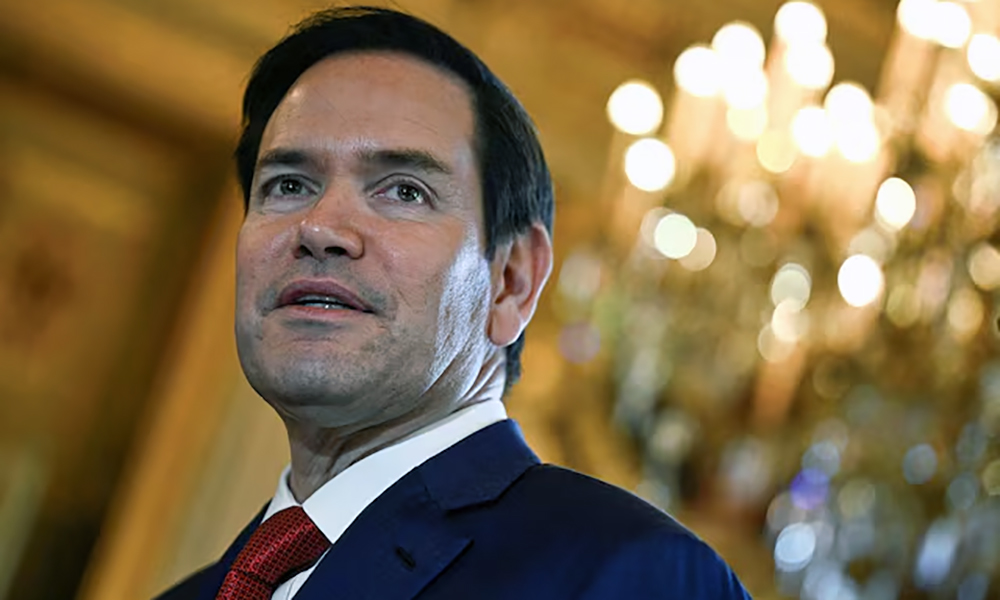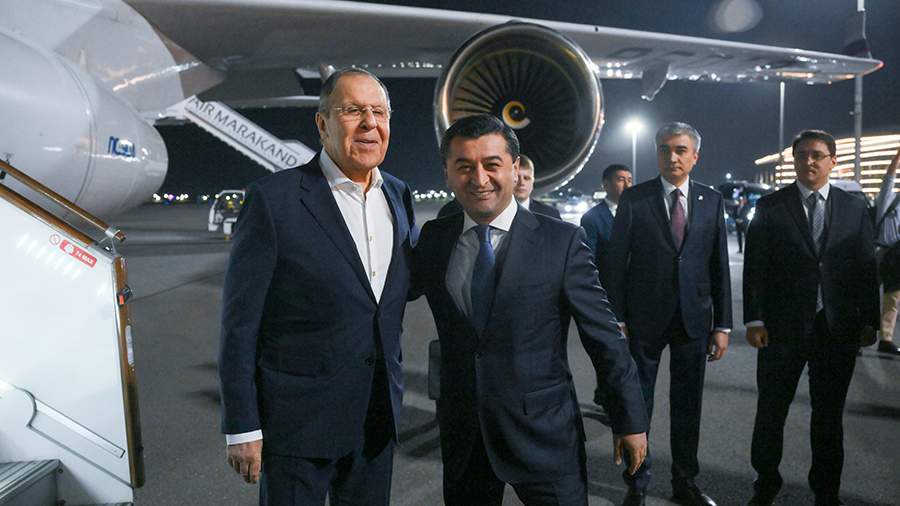Regional
Israel targets Hezbollah intel HQ in Lebanon, Iran says it will not back down
A blast was heard and smoke was seen over Beirut’s southern suburbs early on Saturday, Reuters witnesses said, as the Israeli military issued three alerts for residents of the area to immediately evacuate.

Israel said it had targeted the intelligence headquarters of Hezbollah in Beirut and was assessing the damage on Friday after a series of strikes on senior figures in the group that Iran’s Supreme Leader dismissed as counterproductive.
Israel has been weighing options in its response to Iran’s ballistic missile attack on Tuesday, which Iran had carried out in response to Israel’s military action in Lebanon, Reuters reported.
Oil prices have risen on the possibility of an attack on Iran’s oil facilities as Israel pursues its goals of pushing back Hezbollah militants in Lebanon and eliminating their Hamas allies in Gaza.
The air attack on Beirut, part of a wider assault that has driven more than 1.2 million Lebanese from their homes, was reported to have targeted the potential successor to the leader of Iran-backed Hezbollah, Sayyed Hassan Nasrallah, killed by Israel a week ago.
Hashem Safieddine’s fate was unclear and neither Israel nor Hezbollah have offered any comment.
A blast was heard and smoke was seen over Beirut’s southern suburbs early on Saturday, Reuters witnesses said, as the Israeli military issued three alerts for residents of the area to immediately evacuate.
The first alert warned residents in a building in the Burj al-Barajneh neighbourhood and the second in a building in Choueifat district. The third alert mentioned buildings in Haret Hreik as well as Burj al-Barajneh.
In a statement early on Saturday, Hezbollah also said the Israeli army was trying to infiltrate the Lebanese southern town of Odaisseh and that clashes there were ongoing.
U.S. President Joe Biden said on Friday he would think about alternatives to striking Iranian oil fields if he were in Israel’s shoes, adding that he thinks Israel has not yet concluded how to respond to Iran.
Biden was asked at a White House press briefing if he thought that by not engaging in diplomacy, Israeli Prime Minister Benjamin Netanyahu was trying to influence the Nov. 5 U.S. election in which Republican former President Donald Trump faces Democratic Vice President Kamala Harris.
“Whether he is trying to influence the election, I don’t know but I am not counting on that,” Biden said in response. “No administration has done more to help Israel than I have.”
The government in Lebanon says more than 2,000 people have been killed there in the past year, most in the past two weeks.
U.N. spokesperson Stephane Dujarric called the toll on civilians “totally unacceptable.”
The Lebanese government has accused Israel of targeting civilians, pointing to dozens of women and children killed. It has not broken down the overall figure between civilians and Hezbollah fighters.
Israel says it targets military capabilities and takes steps to mitigate the risk of harm to civilians. It accuses Hezbollah and Hamas of hiding among civilians, which they deny.
The U.S. State Department said that an American was killed in Lebanon this week and Washington was working to understand the circumstances of the incident.
Kamel Ahmad Jawad, from Dearborn, Michigan, was killed in an Israeli airstrike on Tuesday, according to his daughter, a friend and the U.S. congresswoman representing his district.
State Department spokesperson Matthew Miller said the department was “alarmed” by the reports, and added: “it is a moral and strategic imperative that Israel take all feasible precautions to mitigate civilian harm.”
The latest bloodletting in the decades-old Israeli-Palestinian conflict stems from an attack by Palestinian Hamas militants’ Oct. 7, 2023, that killed 1,200 and in which about 250 were taken as hostages, according to Israeli tallies.
Israel’s subsequent assault on Gaza has killed over 41,000 Palestinians, according to Gaza’s health ministry, and displaced nearly Gaza’s entire population, caused a hunger crisis and led to genocide allegations that Israel denies.
The Israeli military said some 70 projectiles were launched from Lebanon into Israeli territory on Friday evening and were either intercepted or fell in open land.
Israel sent ground forces into Lebanon this week after the Iranian missiles attacks. It has said its ground operations are “localized” in villages near the border, but has not specified how far into Lebanon they would advance or how long they would last.
Israel says the operations aim to allow tens of thousands of its citizens to return home after Hezbollah bombardments that forced them to evacuate from its north.
IRAN VOWS NOT TO BACK DOWN
Iran’s missile salvo was partly in retaliation for Israel’s killing of Hezbollah secretary-general Nasrallah, a dominant figure who had turned the group into a powerful armed and political force with reach across the Middle East.
Iranian leader Ayatollah Ali Khamenei told a huge crowd in Tehran that Iran and its regional allies would not back down.
Israel’s adversaries in the region should “double your efforts and capabilities… and resist the aggressive enemy,” Khamenei said in a rare appearance leading Friday prayers, at which he mentioned Nasrallah and called Iran’s attack on Israel legal and legitimate.
He said Iran would not “procrastinate nor act hastily to carry out its duty” in confronting Israel.
The semi-official Iranian news agency SNN quoted Revolutionary Guards deputy commander Ali Fadavi as saying on Friday that if Israel attacked, Tehran would target Israeli energy and gas installations.
Axios reporter Barak Ravid cited three Israeli officials as saying that Hezbollah official Safieddine, rumoured to be Nasrallah’s successor, had been targeted in an underground bunker in Beirut overnight but his fate was not clear.
Israeli Lieutenant Colonel Nadav Shoshani said on Friday the military was still assessing the Thursday night airstrikes, which he said targeted Hezbollah’s intelligence headquarters.
Earlier the Israeli military reported that it had killed the head of Hezbollah’s communication networks, Mohammad Rashid Sakafi. It declined to comment on the report that Safieddine was targeted.
Hezbollah made no comment on the fate of Sakafi.
Khamenei said assassinations would just spur more attacks.
“Every strike launched by any group against Israel is a service to the region and to all humanity,” he said, adding that Afghanistan should join the “defence”.
FLATTENED BEIRUT BUILDINGS
In Hezbollah’s stronghold in Beirut’s southern suburbs, many buildings have been reduced to rubble. Nearly all the storefronts in the main market street, Moawad Souk, were damaged and the road filled with broken glass.
“We’re alive but don’t know for how long,” said Nouhad Chaib, a 40-year-old man already displaced from the south.
The Islamic Health Authority, a civil defence agency linked to Hezbollah, said 11 medics had been killed in three separate Israeli attacks across southern Lebanon on Friday.
The Israeli military said that in the past day it had struck several weapons storage facilities, command and control centres, and Hezbollah infrastructure sites in the Beirut area.
Iran’s Foreign Minister Abbas Araqchi, visiting Beirut and meeting with top Lebanese officials, said Tehran supported efforts for a ceasefire in Lebanon provided it was backed by Hezbollah and was simultaneous with a Gaza ceasefire.
Regional
Iran can’t enrich uranium, could only import it for civilian program, Rubio says
Iran has denied wanting to develop a nuclear weapon and says its nuclear program is peaceful. U.S. and Iranian officials will meet in Oman on Saturday for a third round of talks.

Iran will have to stop enriching uranium under any deal with the United States and could only import what is needed for a civilian nuclear program, U.S. Secretary of State Marco Rubio said ahead of talks between Tehran and Washington on Saturday, Reuters reported.
However, Iran has already made clear that its right to enrich uranium is not negotiable. When asked about Rubio’s comments, a senior Iranian official, close to Iran’s negotiating team, again said on Wednesday “zero enrichment is unacceptable.”
The U.S. is seeking to prevent Iran from developing a nuclear bomb and President Donald Trump has imposed a “maximum pressure” campaign of sanctions and threatened to use military force if Iran does not end its nuclear program.
Iran has denied wanting to develop a nuclear weapon and says its nuclear program is peaceful. U.S. and Iranian officials will meet in Oman on Saturday for a third round of talks on Tehran’s disputed nuclear program.
“There’s a pathway to a civil, peaceful nuclear program if they want one,” Rubio told the “Honestly with Bari Weiss” podcast on Tuesday.
“But if they insist on enriching, then they will be the only country in the world that doesn’t have a ‘weapons program,’ … but is enriching. And so I think that’s problematic,” he said.
U.S. Middle East envoy Steve Witkoff last week said Iran does not need to enrich past 3.67% – a remark that raised questions as to whether Washington still wanted Tehran to dismantle its enrichment program, read the report.
Witkoff then said a day later that Iran must “stop and eliminate its nuclear enrichment.”
Rubio said on Tuesday that Witkoff was initially talking about “the level of enriched material that they would be allowed to import from outside, like multiple countries around the world do for their peaceful civil nuclear programs.”
“If Iran wants a civil nuclear program, they can have one just like many other countries in the world have one, and that is they import enriched material,” he said.
The U.N. nuclear watchdog – the International Atomic Energy Agency – has said that Iran is “dramatically” accelerating enrichment of uranium to up to 60% purity, close to the roughly 90% weapons-grade level.
Western countries say there is no need to enrich uranium to such a high level for civilian uses and that no other country has done so without producing nuclear bombs.
Regional
Lavrov in Uzbekistan for talks on various issues including regional security matters
Lavrov is expected to meet with Uzbek President Shavkat Mirziyoyev and with Uzbek Foreign Minister Bakhtiyor Saidov

Russian Foreign Minister Sergey Lavrov will meet with Uzbek government officials this week to discuss bilateral relations, Eurasian integration and preparations for the upcoming 80th anniversary of victory over Nazi Germany.
The Russian Foreign Ministry’s official spokeswoman, Maria Zakharova, said Lavrov is expected to meet with Uzbek President Shavkat Mirziyoyev and will hold talks with Uzbek Foreign Minister Bakhtiyor Saidov, TASS reported.
“The sides will discuss current international issues of mutual interest, regional security matters, cooperation within the CIS, SCO and Central Asia-Russia frameworks, taking into account the closeness or similarity between Moscow and Tashkent’s approaches,” Zakharova said adding that “the agenda will also include matters of Eurasian integration processes with Uzbekistan’s observer status in the EAEU in mind.”
During his meetings with leaders of the Commonwealth of Independent States (CIS) last December, Russian President Vladimir Putin invited them to attend the Victory Day celebrations in Moscow scheduled to be held on May 9.
Also, military units from 19 friendly nations have been invited to participate in the Red Square Parade. The list of these countries has not yet been published, but Uzbek troops marched in the Red Square five years ago, during the 75th anniversary of Victory in the Great Patriotic War.
Uzbekistan traditionally holds numerous Victory Day celebrations and campaigns.
Meanwhile, the Russian Foreign Ministry has emphasized that Moscow and Tashkent have “constructive, respectful and mutually beneficial ties, based on the principles of friendship, sovereign equality and respect to each other’s interests.”
The sides actively cooperate in trade, energy, science and humanitarian affairs.
Special attention will be paid to the issue of labor migrants, as around 1.1 million Uzbek citizens are employed in various sectors in Russia.
Talks will also reportedly include Afghanistan, as this is an important subject for the two nations, TASS reported.
Other regional and global issues are also expected to be touched upon during Lavrov’s meetings with Uzbek officials in Samarkand.
Regional
At least 20 feared killed in militant attack on tourists in Indian Kashmir, security sources say
One security source put the death toll at 20; the second put it at 24 and the third at 26. All three spoke on condition of anonymity as they were not authorised to speak to the media.

At least 20 people were feared killed after suspected militants opened fire on tourists in India’s Jammu and Kashmir territory on Tuesday, three security sources said, the worst attack on civilians in the troubled Himalayan region for years, Reuters reported.
The attack occurred in Pahalgam, a popular destination in the scenic, mountainous region where mass tourism, especially during the summer, has resurged as Islamist militant violence has eased in recent years.
One security source put the death toll at 20; the second put it at 24 and the third at 26. All three spoke on condition of anonymity as they were not authorised to speak to the media.
“The firing happened in front of us,” one witness told broadcaster India Today, without giving his name. “We thought someone was setting off firecrackers, but when we heard other people (screaming), we quickly got out of there … saved our lives and ran.”
“For four kilometers, we did not stop … I am shaking,” another witness told India Today.
The attack occurred in an off-the-road meadow and two or three militants were involved, the Indian Express newspaper reported, citing an unidentified senior police officer.
“The death toll is still being ascertained so I don’t want to get into those details,” Jammu and Kashmir Chief Minister Omar Abdullah said in a post on X. “Needless to say, this attack is much larger than anything we’ve seen directed at civilians in recent years.”
The nationalities of the victims were not immediately known, read the report.
A little-known militant group, the “Kashmir Resistance,” claimed responsibility for the attack in a social media message. It expressed discontent that more than 85,000 “outsiders” had been settled in the region, spurring a “demographic change”.
“Consequently, violence will be directed toward those attempting to settle illegally,” it said.
Reuters could not independently verify the source of the message.
The regional government of Jammu and Kashmir, where Pahalgam is located, told its legislature this month that nearly 84,000 non-locals, from within India, had been given domicile rights in the territory in the last two years.
“Those behind this heinous act will be brought to justice … They will not be spared!” Indian Prime Minister Narendra Modi posted on X. “Their evil agenda will never succeed. Our resolve to fight terrorism is unshakable and it will get even stronger.”
Indian Home Minister Amit Shah said he was rushing to Kashmir to hold a security meeting.
In Washington, the White House said U.S. President Donald Trump had been briefed on what a White House spokesperson described as a “brutal terrorist attack.”
India’s foreign ministry subsequently said Trump called Modi and “expressed full support to India to bring to justice the perpetrators of this heinous attack.”
Militant violence has afflicted the Himalayan region, claimed in full but ruled in part by both India and Pakistan, since an anti-Indian insurgency began in 1989. Tens of thousands of people have been killed, although violence has tapered off in recent years, Reuters reported.
India revoked Kashmir’s special status in 2019, splitting the state into two federally administered territories – Jammu and Kashmir, and Ladakh. The move allowed local authorities to issue domicile rights to outsiders, allowing them to get jobs and buy land in the territory.
That led to a deterioration of ties with Pakistan, which also claims the region. The dispute has spurred bitter animosity and military conflict between the nuclear-armed neighbours.
Attacks targeting tourists in Kashmir have become rare. The last deadly incident took place in June 2024 when at least nine people were killed and 33 injured after a militant attack caused a bus carrying Hindu pilgrims to plunge into a deep gorge.
Some major militant attacks during the height of the insurgency coincided with visits from high-profile foreign officials to India, in likely attempts to draw global attention to Kashmir, Indian security agencies have said.
Tuesday’s attack came a day after U.S. Vice President JD Vance began a four-day, largely personal visit to India.
-

 World5 days ago
World5 days agoThousands of protesters rally against Trump across US
-

 Latest News5 days ago
Latest News5 days agoPolio vaccination campaign launched in Afghanistan
-

 International Sports3 days ago
International Sports3 days agoIPL 2025: Robo-Dog ‘Champak’ explained
-

 International Sports5 days ago
International Sports5 days agoIPL 2025: 14-year-old Vaibhav Suryavanshi becomes youngest IPL player
-

 Latest News3 days ago
Latest News3 days agoAriana Afghan Airlines increases flights to China
-

 World4 days ago
World4 days agoPentagon chief Hegseth shared sensitive Yemen war plans in second Signal chat, source says
-

 Latest News4 days ago
Latest News4 days agoChina invites various Afghan delegations to attend Shanghai forums
-

 Regional4 days ago
Regional4 days agoJD Vance arrives in India, to hold talks with Modi under US tariffs shadow
























